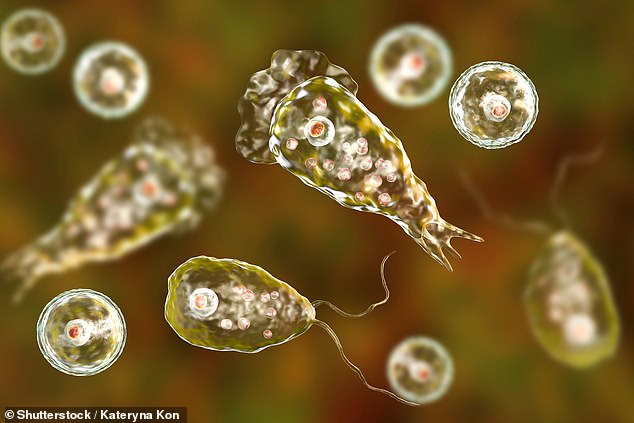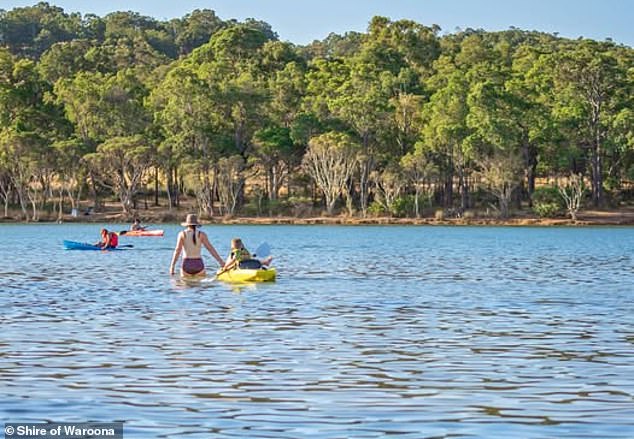A popular swimming spot has been closed after a potentially fatal organism was detected.
Water at Drakesbrook Weir in Waroona, south of Perth, tested positive for the naegleria amoeba after routine fortnightly testing.
The worrying discovery prompted an urgent warning for the public to stay out of the water “until further notice.”
The organism detected is similar to the horrible naegleria fowleri, which feeds on brains.
The Waroona Shire is now working to rule out the presence of the deadly naegleria fowleri, Western Australia reported.
It is the third time the dam has been closed this year due to the presence of amoebas after previous detections in January and April.
The Shire of Waroona has urged any swimmers who have recently submerged their head underwater at the swimming venue and are feeling unwell or concerned to seek medical attention.
The amoeba organism thrives in warm, stagnant water, so as temperatures rise, swimmers should be careful when entering untreated bodies of water.
Drakesbrook Weir in Waroona, south of Perth (pictured) has been closed to swimmers for the third time this year after a potentially deadly organism was found in the water.

Swimmers are urged to stay out of the water at the popular dam until further notice.
The city council has placed warning signs around the dam to raise awareness among bathers of the serious health risks.
Drakesbrook Weir is a popular spot for locals and tourists due to its grassed picnic area, floating swimming platform and freshwater beach.
Naegleria fowleri causes the disease primary amoebic meningoencephalitis (PAM), also called amoebic meningitis, which is a brain infection that leads to the destruction of brain tissue, according to New South Wales Health.
In its early stages, the symptoms of PAM may be similar to the symptoms of bacterial meningitis.
Initial symptoms may include headache, fever, nausea or vomiting.
Later symptoms may include stiff neck, confusion, inattention to people and surroundings, loss of balance, seizures, and hallucinations.
The disease progresses rapidly after the first symptoms are experienced and death usually occurs within five days.

The amoeba organism thrives in warm, stagnant water and swimmers are urged to be careful not to enter an untreated body of water as temperatures rise during the summer.
The organism grows in warm waters between 25°C and 46°C and can be found in lakes, rivers, dams, boreholes, tanks and pipelines.
It can also grow in naturally warm waters, such as hot springs, and can also be found in poorly maintained, low- or no-chlorine pools.
Only three cases of amoebic meningitis have been reported in Western Australia since the 1980s, but swimmers have still been warned to exercise caution.
People are known to have been affected by the infection in bodies of fresh water that do not have enough chlorine, such as swimming pools or water parks.


